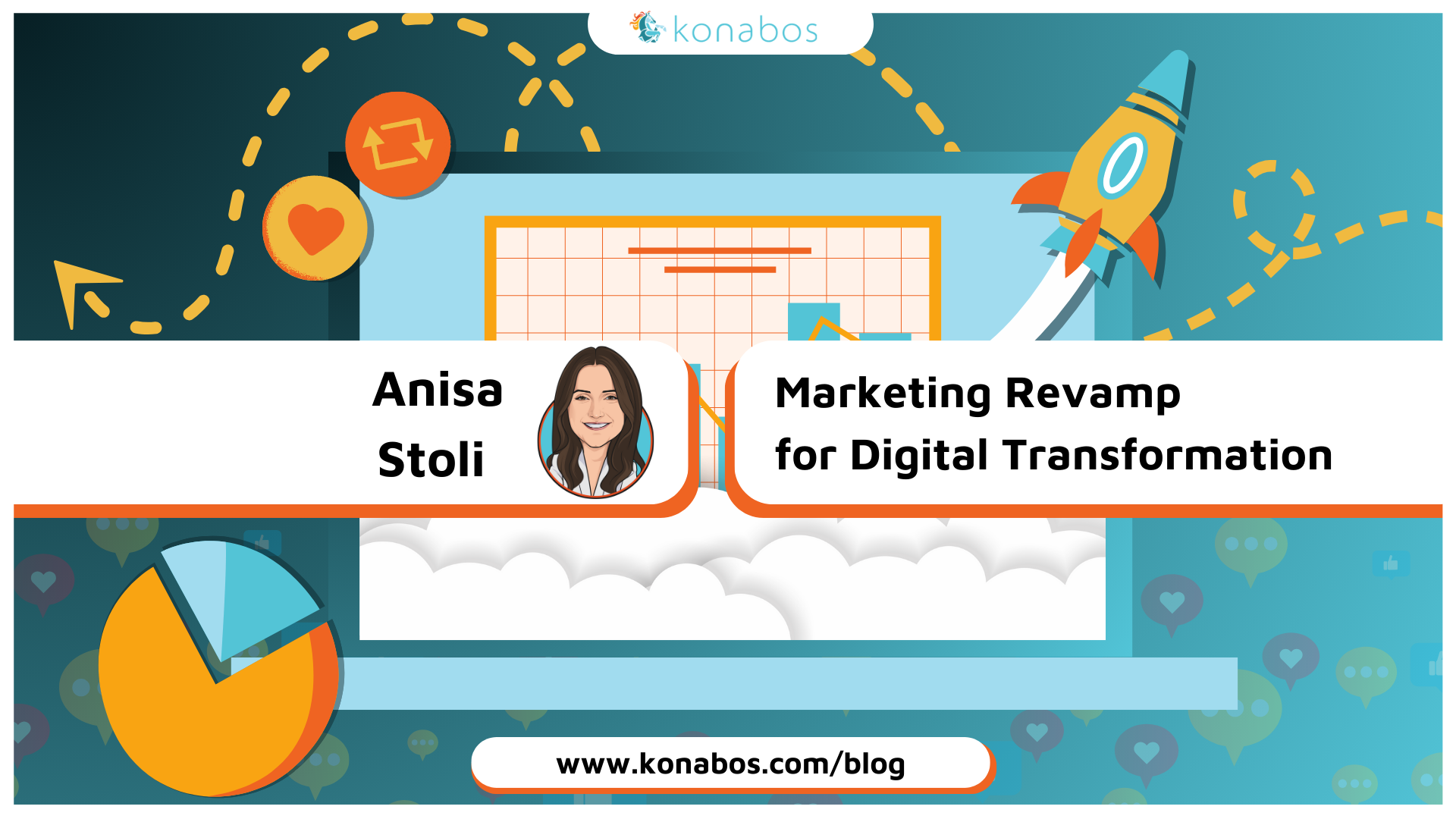Navigating Digital Transformation: Why Your Enterprise Needs a Marketing Revamp
Anisa Stoli - Digital Marketing Director
29 May 2024
In an era where digital technology reshapes markets and consumer expectations at breakneck speed, large enterprises are finding that a traditional marketing approach no longer suffices. Digital transformation in marketing isn’t just a buzzword; it’s an imperative strategy for staying relevant and competitive. This blog delves into the importance of digital transformation in the marketing sector, its impact on large companies, and the undeniable advantages of embracing cutting-edge marketing technologies, strategies, and practices.
The Imperative of Digital Transformation
Digital transformation goes beyond mere digitization; it involves a fundamental rethinking of how an organization uses technology, people, and processes to fundamentally change business performance. In the context of marketing, this means leveraging data analytics, artificial intelligence (AI), machine learning, and digital channels to understand and engage with customers in more personalized and efficient ways. For large enterprises, the transition towards digital marketing strategies is not just about keeping up with competitors but about setting the pace in a rapidly evolving landscape.
The Impact on Large Companies
For large companies, the stakes of digital transformation in marketing are particularly high. These organizations often deal with vast customer bases, complex product lines, and a global presence, making the shift towards digital a complex but rewarding endeavor. The move to digital marketing allows for more granular customer segmentation, real-time feedback loops, and agile responses to market trends. However, without a strategic approach to this transformation, companies risk disjointed customer experiences, data silos, and missed opportunities for engagement and growth.
Advantages of Embracing Digital Marketing Technologies and Strategies
Adopting new marketing technologies and strategies opens a plethora of opportunities for enterprises:
- Enhanced Customer Insights: Digital tools and analytics provide deeper insights into customer behavior, preferences, and trends, enabling more targeted and effective marketing campaigns.
- Personalized Customer Engagement: AI and machine learning enable personalized marketing at scale, improving customer experiences and loyalty.
- Operational Efficiency: Automation tools streamline marketing operations, freeing up resources for strategic tasks and innovation.
- Agility and Innovation: Digital platforms facilitate rapid testing, learning, and adapting, allowing companies to innovate quickly and stay ahead of market trends.
- New Channels for Revenue: Digital transformation opens up new channels and platforms for engaging customers and generating revenue, from social media to mobile apps.
The Role of a Specialized Marketing Team in Driving Transformation
A specialized marketing team plays a pivotal role in navigating the digital transformation journey. This team is not just about executing digital campaigns but about fostering a digital culture within the organization. They are the architects of the digital marketing strategy, the champions of change, and the bridge between technology and business outcomes.
- Strategy and Vision: They set the digital marketing strategy in line with business objectives, ensuring every digital initiative aligns with the company’s broader goals.
- Technology and Innovation: They lead the adoption of new technologies, from AI-driven analytics to customer relationship management (CRM) systems, ensuring the organization remains at the forefront of digital capabilities.
- Data-Driven Decision Making: By leveraging data analytics, the marketing team can make informed decisions, measure ROI effectively, and continuously optimize strategies for better outcomes.
- Cross-Functional Collaboration: They foster collaboration across departments, ensuring a cohesive approach to customer experience that transcends traditional silos.
Conclusion
The journey of digital transformation in marketing represents a profound shift in how large enterprises engage with their customers and compete in the global marketplace. By embracing new marketing technologies, strategies, and practices, companies can unlock unprecedented levels of customer insight, engagement, and growth. A specialized marketing team is not just essential but indispensable in steering this transformation, ensuring that the enterprise not only navigates the digital era successfully but thrives in it, opening new avenues for innovation and revenue generation. The future belongs to those who innovate, and in the realm of marketing, digital transformation is the most potent form of innovation.
Does your marketing team need a little extra support? Let’s chat.

Anisa Stoli
I am a marketing professional with experience in B2B, B2C, e-learning, and SaaS. Specialized in organic marketing, I leverage emails, online course creation, SEO, content creation, social media strategies, and online events to drive growth and sales.
As the co-founder of 3Skills, I helped grow our online community from 0 to 11,000 people in 2 years (on a part-time basis).
Using my passion for entrepreneurship, I am proud to have developed an 8-week marketing program where I teach entrepreneurs how to grow their businesses organically.
I leverage platforms like Airtable, Hubspot, Salesforce, Later, Slack, Asana, and more to establish scalable marketing and automate processes that allow for seamless business advancement.
In my roles as Founder, Team Lead, and Coach, I have developed a mindset of growth and leadership that I bring in everything I do.



Share on social media